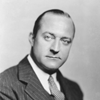Turin—Economists and political scientists from eighteen nations met (Sept. 3 to 9) in this Italian city to discuss some of the world’s political and economic problems.
They are members of e Mont Pelerin Society, named after the place where it first met in Switzerland fourteen years ago. The original meeting was attend d by only 47 persons from little More than half a dozen countries the U. S., Britain, France, Italy, Switzerland, Belgium, Holland, and Norway. Chiefly under the leadership of F. A. Hayek, author of The Road to Serfdom, who became the society’s first president, the group was united by a common belief in libertarian principles—in limited government, in free, private, competitive enterprise, in the lowering or abolition of the barriers to international trade, in the restoration of a world monetary order, in the restoration of a Rule of Law, internally and externally. They were against the network of price controls and exchange controls that then existed, against the drift into socialism, collectivism, national planning, and the welfare state, that seemed so irresistible in
The group that met in 1947 felt isolated. Those especially who came from Continental Europe thought of themselves as "liberals," and called themselves that; but their principles—of traditional liberalism—were regarded as reactionary, outmoded, and unreal by their socialist and welfare-statist colleagues in the academic world. For the great majority of those who met were university professors.
Men of Influence
In the following decade, however, the Mont Pelerin Society met with more success than its original members had dared to hope for. Its membership now exceeds 200, from more than twenty countries, including non-European countries such as Japan, India, Argentina, and Peru. And its membership, though still dominantly made up of professors and scholars, includes men who occupy or have occupied positions of great influence or power in their own countries—Sen. Luigi Einaudi, former President of Italy, Dr. Ludwig Erhard, Economics Minister of West Germany, Jacques Rueff, author of the Rueff economic program in France, Pedro Beltran, the Premier of Peru, to name a few.
The original members of the society have lived to see stifling economic controls, internal and external, lifted in a score of countries, currencies stabilized, inflations in many countries brought to a comparative halt, and a wide disenchantment with socialist panaceas. Some of the members have been influential in bringing about these reforms. But they have acted always as individuals. The society is in no sense a propaganda organization; it has no platform, program, or declared statement of principles. It meets purely for the exchange of ideas, and though it is pervaded by a libertarian philosophy and spirit, there are differences of opinion on details.
Global Topics
At the meeting the members discussed such topics as the relationship of democracy and liberalism, the responsibilities of the Western countries to the underdeveloped areas, the status of Communism, particularly in Italy, France, and South America, and the possibility of a return to an international monetary order.
Again, in the shadow of the Berlin crisis and the threats and actions of Khrushchev, many members expressed the deepest misgivings about the outlook for economic order and freedom. Yet there was a surprising area of agreement among the recommendations of individual speakers for national and international currency reform. What was remarkable was the almost unanimous conclusion that the only alternative to inflation and continued monetary chaos was a restoration of the international gold standard.
There was, to be sure, some dissent from this view. There was even more disagreement among individual speakers concerning the exact method of returning to a full gold standard and of adopting new currency unit values in terms of gold. But not a single speaker expressed satisfaction with the present International Monetary Fund system. Several, indeed, dismissed it as a pseudo-gold standard, a "gilded" standard with a built-in world inflationary bias.
Newsweek, September 25, 1961

